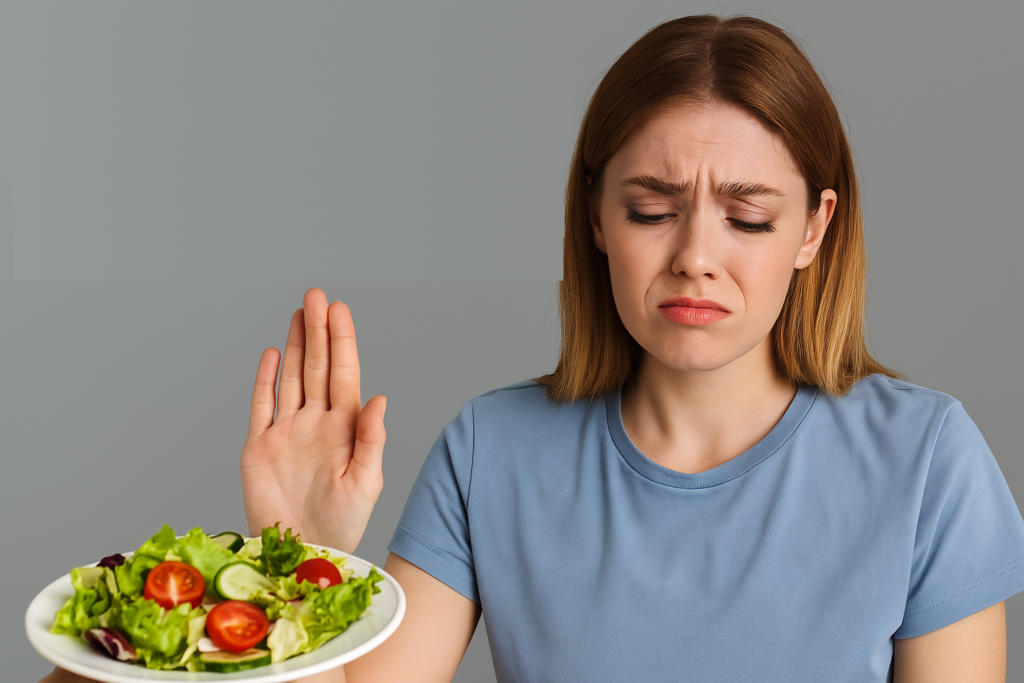Dealing with Irritable Bowel Syndrome (IBS) can be a real challenge, especially for women who are twice as likely to be affected as men. Understanding which foods might trigger your symptoms is crucial in managing this condition. Let’s explore some common culprits and why they might be causing you trouble.
1. Dairy Products
Milk, cheese, and ice cream are staples in many diets, but they can be problematic for those with IBS. Dairy contains lactose, a sugar that some people have difficulty digesting, leading to symptoms like bloating, gas, and diarrhea. Interestingly, yogurt might be an exception due to its live cultures that help break down lactose.
2. High-FODMAP Fruits
Certain fruits like apples, pears, and watermelons are high in FODMAPs—fermentable sugars that can exacerbate IBS symptoms. These sugars can ferment in the gut, leading to increased gas and discomfort.
3. Cruciferous Vegetables
Veggies like broccoli, cauliflower, and Brussels sprouts are known to cause gas and bloating. While they’re nutritious, their high fiber content can be tough on sensitive digestive systems.
4. Legumes
Beans and lentils are notorious for causing gas. They contain certain carbohydrates that are hard to digest, leading to bloating and discomfort.
5. Caffeinated Beverages
Coffee, tea, and certain sodas contain caffeine, which can stimulate the intestines and lead to diarrhea—a common issue for those with IBS.
6. Artificial Sweeteners
Sweeteners like sorbitol and mannitol, often found in sugar-free candies and gums, can cause digestive issues. They are poorly absorbed in the gut, leading to bloating and diarrhea.
7. Fried and Fatty Foods
High-fat foods, especially fried items, can be difficult to digest and may trigger IBS symptoms. They can alter gut motility, leading to either diarrhea or constipation.
8. Alcohol
Alcohol can irritate the gut and disrupt digestion, potentially worsening IBS symptoms. It’s also dehydrating, which can affect bowel movements.
9. Carbonated Beverages
Sodas and sparkling waters introduce gas into the digestive system, which can lead to bloating and discomfort.
10. Gluten-Containing Foods
For some individuals, gluten—a protein found in wheat, barley, and rye—can trigger IBS symptoms. This is especially true for those with gluten sensitivity.
Understanding FODMAPs
FODMAPs are specific types of carbohydrates that are poorly absorbed in the small intestine. They include:
- Fermentable: Easily broken down by bacteria in the gut.
- Oligosaccharides: Found in foods like wheat, onions, and garlic.
- Disaccharides: Lactose-containing foods like milk.
- Monosaccharides: Excess fructose found in certain fruits.
- Polyols: Sugar alcohols found in some fruits and artificial sweeteners.
A low-FODMAP diet has been shown to reduce symptoms in up to 86% of people with IBS.
Tips for Managing IBS Through Diet
- Keep a Food Diary: Track what you eat and how it affects your symptoms.
- Introduce Fiber Gradually: While fiber is essential, increasing it too quickly can cause gas and bloating.
- Stay Hydrated: Drinking plenty of water aids digestion and can help prevent constipation.
- Consult a Dietitian: They can provide personalized advice and ensure you’re meeting nutritional needs.
Remember, everyone’s body is different. It’s essential to identify your specific triggers and work towards a diet that keeps you feeling your best.
Disclaimer: This post is for informational purposes only. Always consult a healthcare professional for personalized dietary advice.








